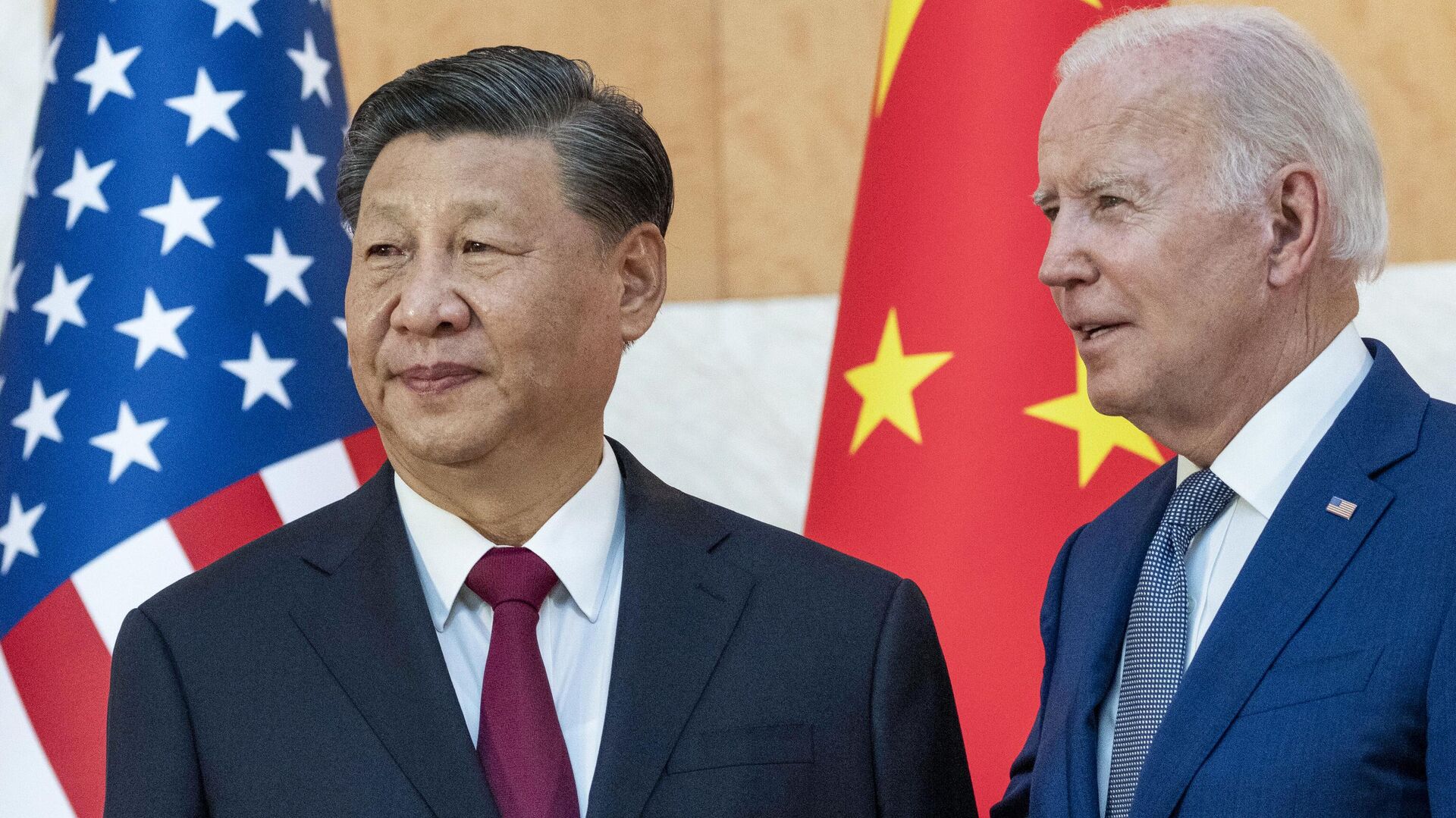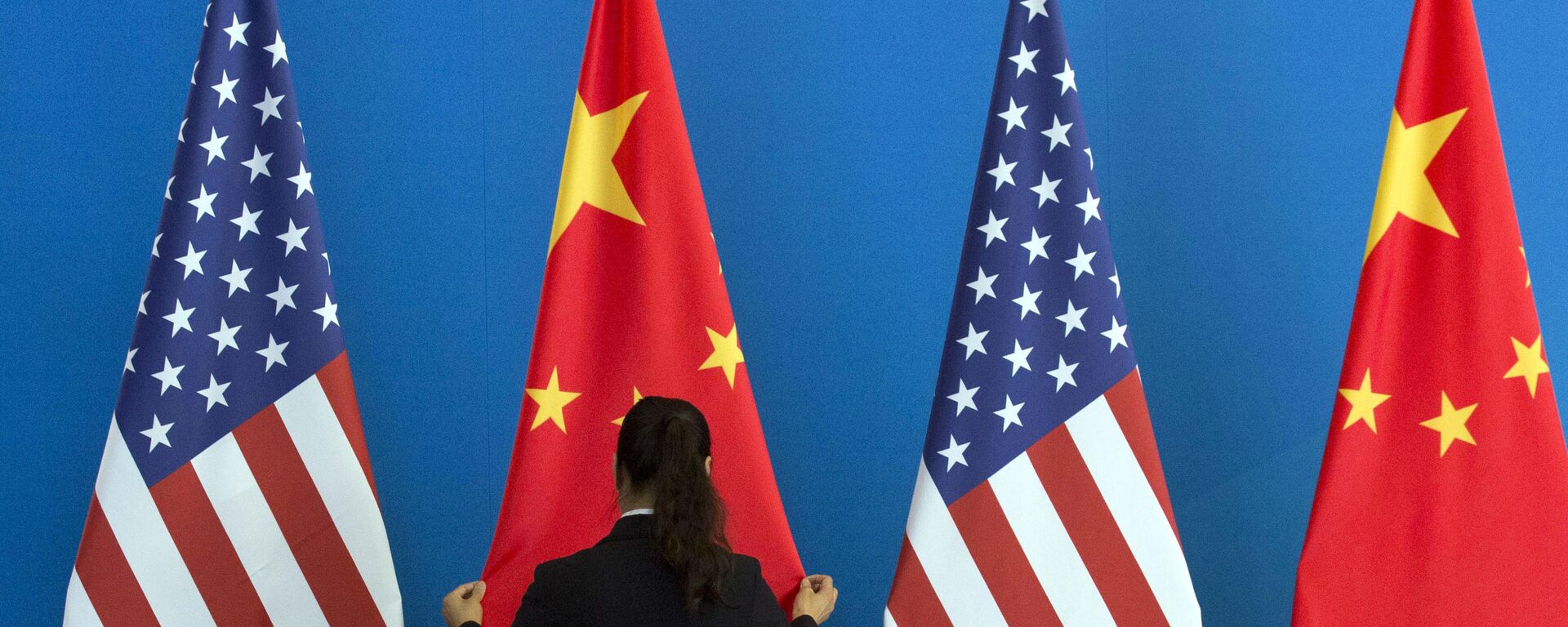Xi Tells Biden Taiwan Issue Constitutes Red Line in Bilateral Relations

© AP Photo / Alex Brandon
Subscribe
BEIJING (Sputnik) - Chinese President Xi Jinping told US President Joe Biden during a phone conversation on Tuesday that the issue of Taiwan is a red line for the bilateral relations.
"The Taiwan issue in China-US relations is a major red line that must not be crossed. We will not turn a blind eye to the separatist activities of forces advocating 'Taiwan's independence' and the connivance and support [of these forces] by outside forces," Xi said, as quoted by the Xinhua news agency.
Xi also said that China and the US should strengthen dialogue, thoroughly resolve difference and enhance international coordination.
Biden, in turn, reportedly said that the US does not support Taiwan’s independence and is not planning to enter into a conflict with China. The US president also said that Washington is not seeking to wage a "new Cold War," change China’s system or build alliances against Beijing.
China Will Not Stay Silent if US Tries to Suppress Its Development
China will not stay silent if the United States will make attempts to suppress China's development of high technologies and undermine its progress, President Xi Jinping told President Biden.
"If the US wants to carry out mutually beneficial cooperation and jointly share China's development dividends, China's doors will always be open, If the US insists on suppressing China's high-tech development and depriving China of its legitimate right to develop, we will not remain silent and do nothing," Xi underlined.
Biden said that China’s development is beneficial to the whole world, and Washington is not seeking undermine Beijing’s development or sever bilateral ties.
Biden Raises Concerns About China's 'Unfair Trade Policies'
In turn, Biden raised concerns over Beijing’s “unfair trade policies and non-market economic practices,” the White House said in a readout.
“President Biden also raised continued concerns about the PRC’s unfair trade policies and non-market economic practices, which harm American workers and families,” the readout read.
China overtakes the US in Southeast Asian favorability ranking
— Sputnik (@SputnikInt) April 2, 2024
The majority of Southeast Asians favor China as their strategic ally over the US, a survey by the Singapore-based ISEAS-Yusok Ishak Institute has found.
50.5% of respondents said they would choose… pic.twitter.com/BwVQpSpov9
Biden also emphasized that the US would continue to take steps to prevent China from using advanced US technologies to undermine US national security.
US-China Relations Stabilized in Recent Months
Xi also said that China-US relations have "stabilized," and citizens of both countries and the international community "welcomed this."
"Last November, Mr. President [Biden] and I met in San Francisco and presented a forward-looking ‘San Francisco Vision.’ Over the past few months, teams from both sides have been working seriously to implement the agreements we have reached," Xi added.
"On the other hand, negative factors have intensified in relations between the two countries, which require special attention from both sides," Xi added.
Biden reportedly said that the progress in Washington-Beijing relations after the San Francisco summit showed that both sides are able to overcome differences.
Biden also reportedly informed Xi that the United States will organize visits by Secretary of State Antony Blinken and Treasury Secretary Janet Yellen to China in the near future to strengthen dialogue and engagement.



